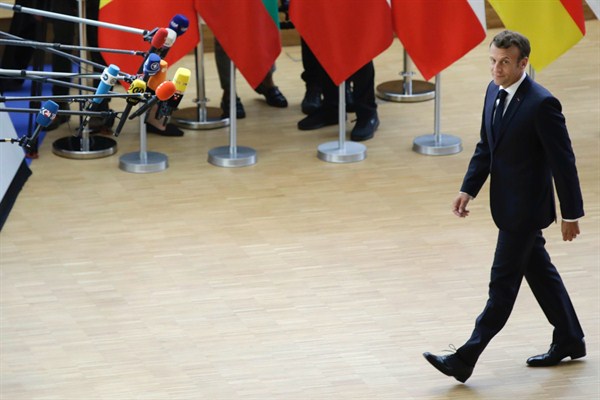It is a question that has lingered since the European debt crisis: Can the European Union and eurozone shore up their institutional crisis-response capabilities without another political or economic emergency to provide the impetus? If June’s eurozone summit in Brussels was any indication, the answer remains no.
At the meeting, the eurozone leaders agreed to establish the Budgetary Instrument for Convergence and Competitiveness, or BICC, a mechanism that ostensibly allows the eurozone to redistribute funds among member states. But compared to the lofty ambitions of French President Emmanuel Macron and others who have long advocated for a centralized eurozone budget, the BICC is a remarkably timid response to the structural challenges that continue to plague the common currency. It was explicitly designed without a countercyclical function, or the ability to increase public spending to stimulate economies in recession. It lacks its own earmarked funding sources, instead cannibalizing the existing EU budget for resources. It must comply with strict controls on how its funds are to be disbursed, namely among eurozone member states “within an acceptable range” of the money each state contributes. Moreover, access to BICC funds will be linked to member states’ implementation of structural reforms.
As a result, the BICC is not in any meaningful sense a centralized eurozone budget with the ability to stabilize vulnerable member states facing economic straits. The attempts in recent years to provide this crucial functionality to the eurozone area—to “fix the roof while the sun is shining,” as Christine Lagarde, the likely next president of the European Central Bank, has said—has patently failed.

